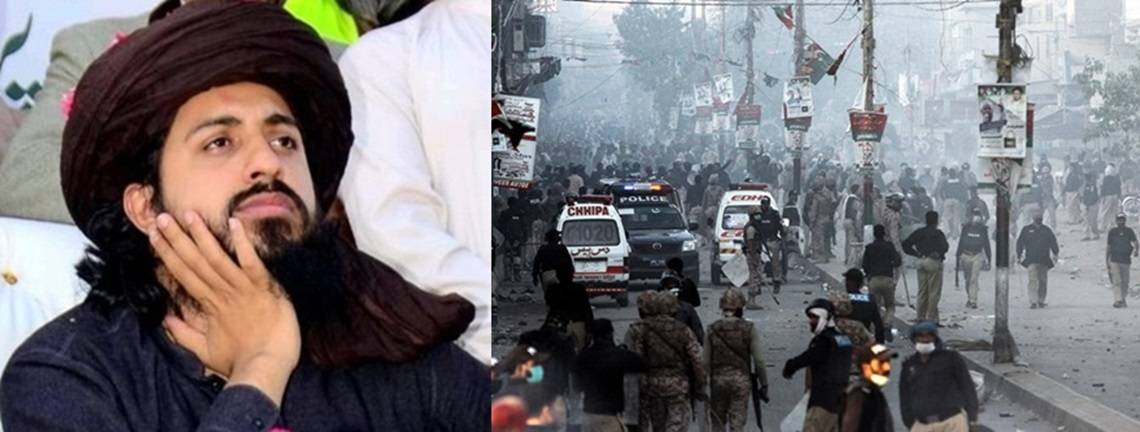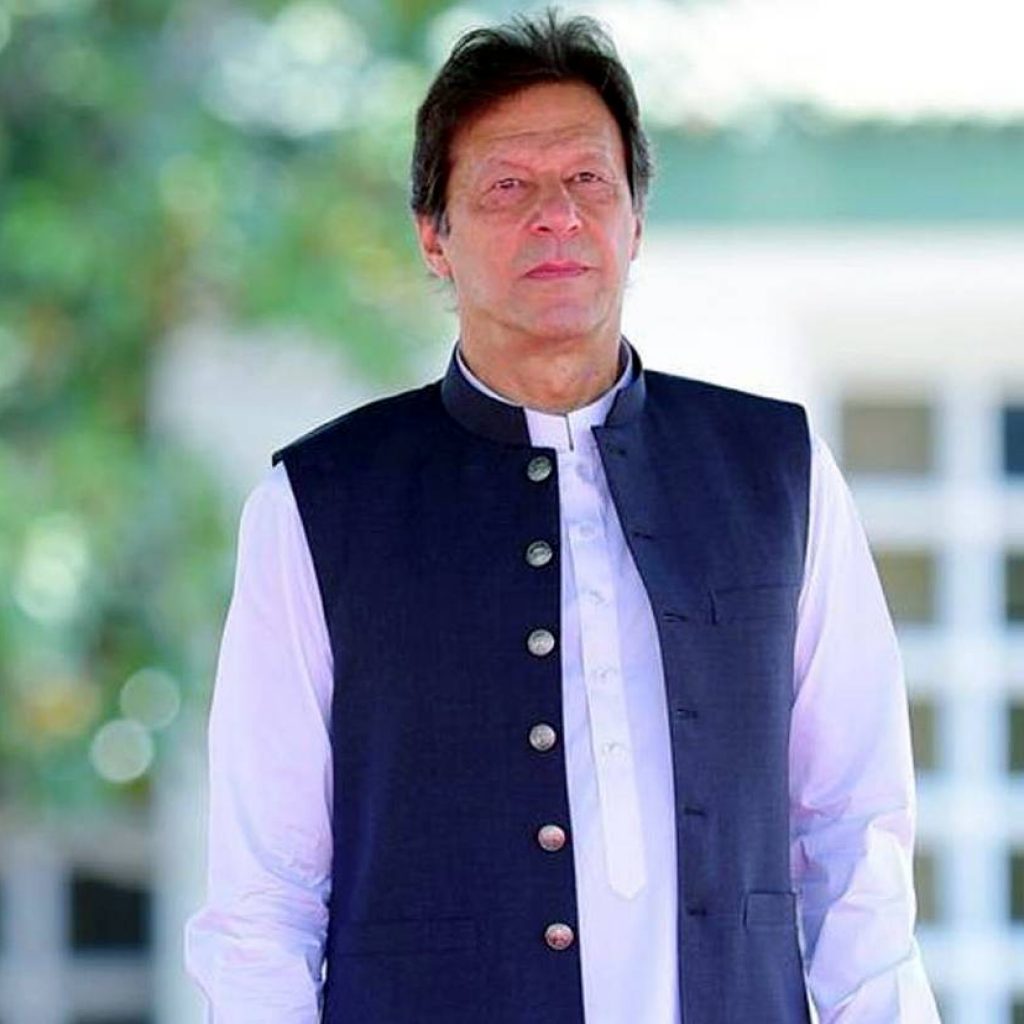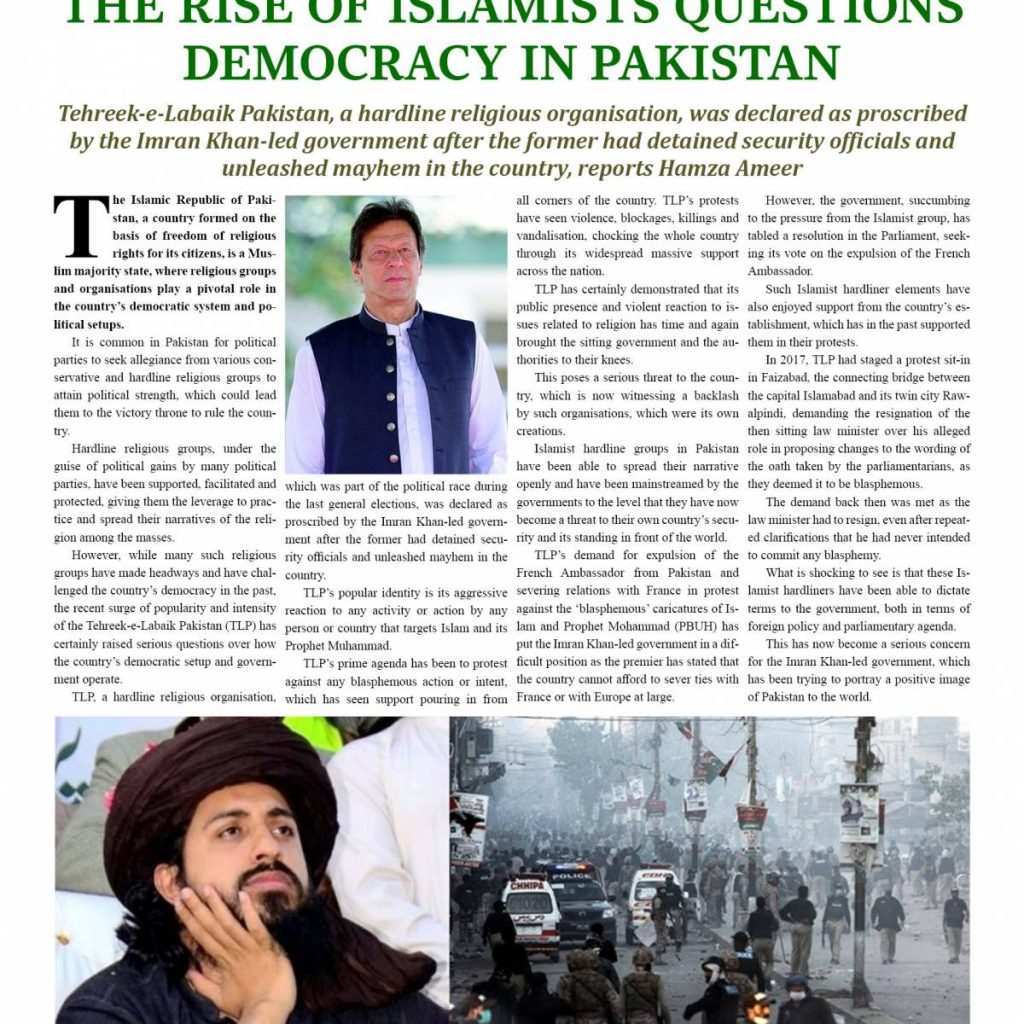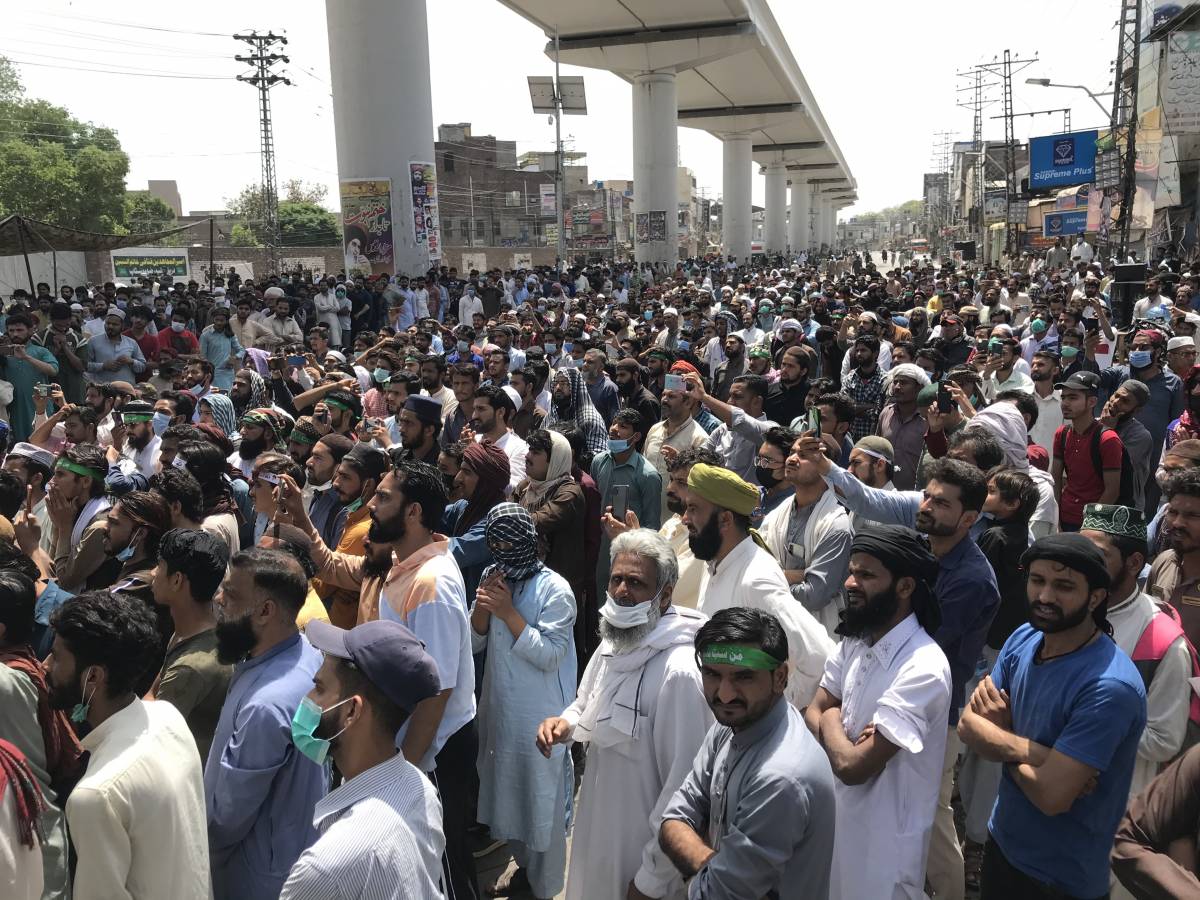Tehreek-e-Labaik Pakistan, a hardline religious organisation, was declared as proscribed by the Imran Khan-led government after the former had detained security officials and unleashed mayhem in the country, reports Hamza Ameer
The Islamic Republic of Pakistan, a country formed on the basis of freedom of religious rights for its citizens, is a Muslim majority state, where religious groups and organisations play a pivotal role in the country’s democratic system and political setups.
It is common in Pakistan for political parties to seek allegiance from various conservative and hardline religious groups to attain political strength, which could lead them to the victory throne to rule the country.
Hardline religious groups, under the guise of political gains by many political parties, have been supported, facilitated and protected, giving them the leverage to practice and spread their narratives of the religion among the masses.
However, while many such religious groups have made headways and have challenged the country’s democracy in the past, the recent surge of popularity and intensity of the Tehreek-e-Labaik Pakistan (TLP) has certainly raised serious questions over how the country’s democratic setup and government operate.

TLP, a hardline religious organisation, which was part of the political race during the last general elections, was declared as proscribed by the Imran Khan-led government after the former had detained security officials and unleashed mayhem in the country.
TLP’s popular identity is its aggressive reaction to any activity or action by any person or country that targets Islam and its Prophet Muhammad.
Also read:UAE extends $2 bn loan to Pakistan
TLP’s prime agenda has been to protest against any blasphemous action or intent, which has seen support pouring in from all corners of the country.
TLP’s protests have seen violence, blockages, killings and vandalisation, chocking the whole country through its widespread massive support across the nation.

TLP has certainly demonstrated that its public presence and violent reaction to issues related to religion has time and again brought the sitting government and the authorities to their knees.
This poses a serious threat to the country, which is now witnessing a backlash by such organisations, which were its own creations.
Islamist hardline groups in Pakistan have been able to spread their narrative openly and have been mainstreamed by the governments to the level that they have now become a threat to their own country’s security and its standing in front of the world.
Also read:Pakistan suspends travel from India
TLP’s demand for expulsion of the French Ambassador from Pakistan and severing relations with France in protest against the ‘blasphemous’ caricatures of Islam and Prophet Mohammad (PBUH) has put the Imran Khan-led government in a difficult position as the premier has stated that the country cannot afford to sever ties with France or with Europe at large.
However, the government, succumbing to the pressure from the Islamist group, has tabled a resolution in the Parliament, seeking its vote on the expulsion of the French Ambassador.

Such Islamist hardliner elements have also enjoyed support from the country’s establishment, which has in the past supported them in their protests.
In 2017, TLP had staged a protest sit-in in Faizabad, the connecting bridge between the capital Islamabad and its twin city Rawalpindi, demanding the resignation of the then sitting law minister over his alleged role in proposing changes to the wording of the oath taken by the parliamentarians, as they deemed it to be blasphemous.
The demand back then was met as the law minister had to resign, even after repeated clarifications that he had never intended to commit any blasphemy.
What is shocking to see is that these Islamist hardliners have been able to dictate terms to the government, both in terms of foreign policy and parliamentary agenda.
This has now become a serious concern for the Imran Khan-led government, which has been trying to portray a positive image of Pakistan to the world.

Leave a Reply